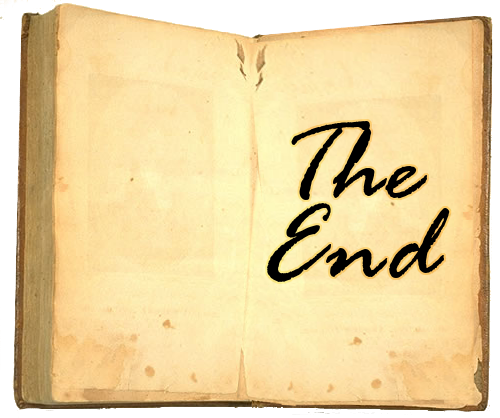In the post below I will provide a link to access the final draft of my Project 3: Public Argument and a reflection about my project 3.
HERE is a link to the final copy of Project 3: My Public Argument.
1. Mark with an "x" where you feel your target audience currently stands on the issue (before reading/watching/hearing your argument) below:
←---------------------------------------------------X--|--------------------------------------------------------->
Strongly Totally neutral Strongly
agree disagree
2. Now mark with an "x" where you feel your target audience should be (after they've read/watched/heard your argument) below:
←-------------------------X---------------------------|--------------------------------------------------------->
Strongly Totally neutral Strongly
agree disagree
3. Check one (and only one) of the argument types below for your public argument:
_______ My public argument establishes an original pro position on an issue of debate.
_______ My public argument establishes an original con position on an issue of debate.
_______ My public argument clarifies the causes for a problem that is being debated.
_______ My public argument proposes a solution for a problem that is being debated.
___X___ My public argument positively evaluate a specific solution or policy under debate (and clearly identifies the idea I'm supporting).
_______ My public argument openly refutes a specific solution or policy under debate (and clearly identifies the idea I'm refuting).
4. Briefly explain how your public argument doesn’t simply restate information from other sources, but provides original context and insight into the situation:
-I think I was able to make my argument different from what has already been written because I was able to include information from many different places as evidence in my argument. Also, because I researched the demographic of treehugger.com's viewers I learned that I am in the same generation as majority of their viewers. Therefore, I was able to appeal to them as I relate to them.
5. Identify the specific rhetorical appeals you believe you've employed in your public argument below:
I tried to keep my argument logical by providing lots of evidence and information from studies. I also hyperlinked to all the different sources I used the links to show my audience that the information I included was credible. In addition to my logical appeals, I tried to appeal to the emotional side of my audience. I tried to make my reader's feel hopeful in the future of water-free fracking.
Ethical or credibility-establishing appeals
_____ Telling personal stories that establish a credible point-of-view
__X__ Referring to credible sources (established journalism, credentialed experts, etc.)
_____ Employing carefully chosen key words or phrases that demonstrate you are credible (proper terminology, strong but clear vocabulary, etc.)
__X__ Adopting a tone that is inviting and trustworthy rather than distancing or alienating
__X___ Arranging visual elements properly (not employing watermarked images, cropping images carefully, avoiding sloppy presentation)
__X__ Establishing your own public image in an inviting way (using an appropriate images of yourself, if you appear on camera dressing in a warm or friendly or professional manner, appearing against a background that’s welcoming or credibility-establishing)
_____ Sharing any personal expertise you may possess about the subject (your identity as a student in your discipline affords you some authority here)
_____ Openly acknowledging counterarguments and refuting them intelligently
__X__ Appealing openly to the values and beliefs shared by the audience (remember that the website/platform/YouTube channel your argument is designed for helps determine the kind of audience who will encounter your piece)
_____ Other:
Emotional appeals
_____ Telling personal stories that create an appropriate emotional impact for the debate
_____ Telling emotionally compelling narratives drawn from history and/or the current culture
_____ Employing the repetition of key words or phrases that create an appropriate emotional impact
__X__ Employing an appropriate level of formality for the subject matter (through appearance, formatting, style of language, etc.)
_____ Appropriate use of humor for subject matter, platform/website, audience
_____ Use of “shocking” statistics in order to underline a specific point
_____ Use of imagery to create an appropriate emotional impact for the debate
_____ Employing an attractive color palette that sets an appropriate emotional tone (no clashing or ‘ugly’ colors, no overuse of too many variant colors, etc.)
_____ Use of music to create an appropriate emotional impact for the debate
_____ Use of sound effects to create an appropriate emotional impact for the debate
__X_ Employing an engaging and appropriate tone of voice for the debate
_____ Other:
Logical or rational appeals
_____ Using historical records from credible sources in order to establish precedents, trends, or patterns
_____ Using statistics from credible sources in order to establish precedents, trends, or patterns
_____ Using interviews from stakeholders that help affirm your stance or position
_____ Using expert opinions that help affirm your stance or position
_____ Effective organization of elements, images, text, etc.
_____ Clear transitions between different sections of the argument (by using title cards, interstitial music, voice over, etc.)
_____ Crafted sequencing of images/text/content in order to make linear arguments
_____ Intentional emphasis on specific images/text/content in order to strengthen argument
_____ Careful design of size/color relationships between objects to effectively direct the viewer’s attention/gaze (for visual arguments)




